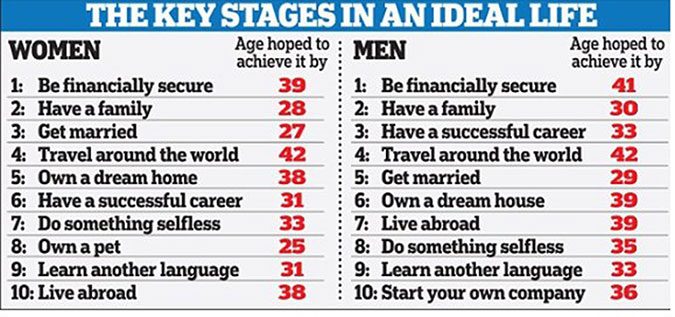Contents
Pregnancy after 30: better for work and salary
According to the latest study by the National Institute of Demographic Studies (INED), 8 out of 10 women are active in the 25-53 age group (Dares) (1). The period of 20 to 30 year-olds is increasingly devoted to studies, integration into working life and obtaining a stable professional situation. In short, not really the right time to have a child. According to an American-Danish study published in January 2016 (2), this calculation would even be financially beneficial. After analyzing the data of 1,6 million Danish women between 1996 and 2009, the researchers found that the fact of having your first baby after 30 engendered less financial loss, both in terms of salary and maternity leave, and when you have your first child before 25 years old. For Raùl Santaeulalia-Llopis, main author of the study: “Children don’t destroy a career, but the sooner they arrive, the more the mother’s income suffers.So there is a real financial advantage for women, and more broadly professional, in delaying the age of childbearing.
Until what age can you get pregnant naturally?
As for the figures, the observation is the same: fertility, which reaches its maximum in your twenties, continues to decrease, at first slowly between 20 and 30 years old, then drastically between 30 and 40. At 25 years old, each menstrual cycle has 25% chance of having a pregnancy. Unless there is an abnormality, we are therefore theoretically supposed to be pregnant after 4 months of regular unprotected intercourse, although we advise to wait a year before consulting. This figure drops to a 15% chance of pregnancy per cycle at age 30, then to 10-12% at age 35. By age 40, the chances of conceiving a baby are only 5 to 6% per cycle. Finally, after 45 years, the chances of natural pregnancy are around 0,5% per cycle. Purely statistical, these data simply show that the longer you wait, the longer it will take to get pregnant and need to use medically assisted procreation.
At what age do you become less fertile?
If gynecologists encourage us so much to have our children between 20 and 35 years old, this is because the quality of the oocytes deteriorates over the years. “ During the 36 hours preceding ovulation, the mature oocyte must eject a set of chromosomes, to be genetically compliant with the sperm and give a healthy individual », Explains Prof. Wolf, gynecologist and head of the Cecos (3) department of Cochin Hospital in Paris. “ However, this ejection of genetic material requires a great deal of energy, which itself is constantly decreasing. Around 37 years of age, the energy available to expel this set of chromosomes begins to lack. This is the reason why the cases of trisomy 21, and more generally genetic abnormalities, are more common in babies from this age. »
But if freezing your eggs when you are young can increase the chances of late pregnancy later, that is not necessarily a good calculation. Because these pregnancies remain very risky, both for the health of the baby and the mother, even if the oocyte is genetically viable. Hypertension, diabetes, fetal growth retardation, prematurity … After 40-45 years, the complications are real.
Ideal age between two pregnancies
Obviously, the more children we want, the more it is in our interest to “get started” early to have enough time in front of you. Likewise, if you know you have a disease that directly or indirectly harms fertility (endometriosis, fibroids, polycystic ovaries), it is better not to delay too much. Wishing to establish precisely the ideal age according to the course envisaged, Dutch researchers (4) have developed a computer model based on the evolution of fertility with age. By pooling more than 300 years of data, they calculated a percentage of chances of having the desired number of children, on the one hand having recourse to in vitro fertilization, on the other to have recourse to it.
In order to have at least a 90% chance ofhave only one child, a couple should start conceiving a baby when the partner is at most 35 years old, if in vitro fertilization is an option being considered. This figure drops to 31 if you want to have two children, and at 28 if you want three. On the other hand, if one does not envisage IVF, it would be necessary for example start the first baby tests at 27 years old, if you want two children, and from 23 years old if you want three. In addition to providing figures (which are not to be taken literally, each woman being different), these indications have the merit of reminding us that the female body is not a machine. After a first pregnancy, the body must also be given time to recover.
(1) Direction of the animation of research, studies and statistics. (2) PlOs One review, 22/01/16. (3) Center for the Study and Conservation of Human Eggs and Sperm.(4) Revue Human Reproduction, 01/06/2015.










